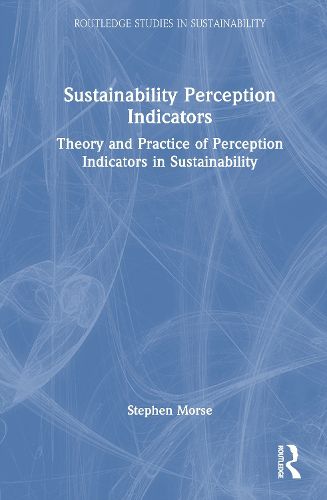Readings Newsletter
Become a Readings Member to make your shopping experience even easier.
Sign in or sign up for free!
You’re not far away from qualifying for FREE standard shipping within Australia
You’ve qualified for FREE standard shipping within Australia
The cart is loading…






This book offers a comprehensive analysis of the background, practice, potential and challenges associated with developing and using perceptual indicators for assessing sustainability.
Sustainability indicators (SIs) are usually described and portrayed as quantitative metrics that rest above the human realm of subjectivity, opinion and bias. Thus, they are the basis for objectively measuring progress towards the attainment of targets in sustainable development. Unlike the 'hard' metrics described above, the way in which we experience the world and frame our personal decisions based on that experience, past and present, is founded on perceptions and these can be inherently subjective. This book argues that perception-based indicators are an important subset of sustainability indicators in assessing sustainability, environmental quality and well-being. The chapters draw upon examples such as the Corruption Perception Index (CPI) produced by Transparency International, and a variety of happiness indices amongst many others. Divided into two parts, the first section provides a broad review of the field of SIs, addressing the challenges involved in identifying, defining and populating SIs, especially for countries in the Global South. The second part of the book summarises the range of participatory approaches that have often been used to develop perception-based indicators of sustainability, along with their respective pros and cons.
This book will be useful for students studying social sciences, economics, environmental studies, human geography, politics and international development. The book may also appeal to students taking courses in business studies.
$9.00 standard shipping within Australia
FREE standard shipping within Australia for orders over $100.00
Express & International shipping calculated at checkout
Stock availability can be subject to change without notice. We recommend calling the shop or contacting our online team to check availability of low stock items. Please see our Shopping Online page for more details.
This book offers a comprehensive analysis of the background, practice, potential and challenges associated with developing and using perceptual indicators for assessing sustainability.
Sustainability indicators (SIs) are usually described and portrayed as quantitative metrics that rest above the human realm of subjectivity, opinion and bias. Thus, they are the basis for objectively measuring progress towards the attainment of targets in sustainable development. Unlike the 'hard' metrics described above, the way in which we experience the world and frame our personal decisions based on that experience, past and present, is founded on perceptions and these can be inherently subjective. This book argues that perception-based indicators are an important subset of sustainability indicators in assessing sustainability, environmental quality and well-being. The chapters draw upon examples such as the Corruption Perception Index (CPI) produced by Transparency International, and a variety of happiness indices amongst many others. Divided into two parts, the first section provides a broad review of the field of SIs, addressing the challenges involved in identifying, defining and populating SIs, especially for countries in the Global South. The second part of the book summarises the range of participatory approaches that have often been used to develop perception-based indicators of sustainability, along with their respective pros and cons.
This book will be useful for students studying social sciences, economics, environmental studies, human geography, politics and international development. The book may also appeal to students taking courses in business studies.